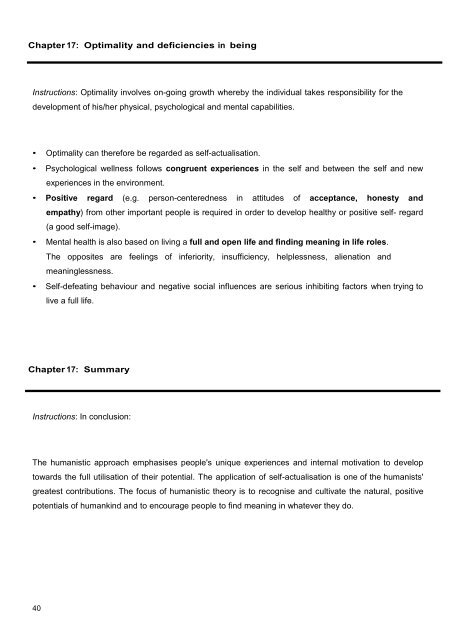IOP1601_MO001_3_2016_E
You also want an ePaper? Increase the reach of your titles
YUMPU automatically turns print PDFs into web optimized ePapers that Google loves.
Chapter 17: Optimality and deficiencies in being<br />
Instructions: Optimality involves on-going growth whereby the individual takes responsibility for the<br />
development of his/her physical, psychological and mental capabilities.<br />
• Optimality can therefore be regarded as self-actualisation.<br />
• Psychological wellness follows congruent experiences in the self and between the self and new<br />
experiences in the environment.<br />
• Positive regard (e.g. person-centeredness in attitudes of acceptance, honesty and<br />
empathy) from other important people is required in order to develop healthy or positive self- regard<br />
(a good self-image).<br />
• Mental health is also based on living a full and open life and finding meaning in life roles.<br />
The opposites are feelings of inferiority, insufficiency, helplessness, alienation and<br />
meaninglessness.<br />
• Self-defeating behaviour and negative social influences are serious inhibiting factors when trying to<br />
live a full life.<br />
Chapter 17: Summary<br />
Instructions: In conclusion:<br />
The humanistic approach emphasises people's unique experiences and internal motivation to develop<br />
towards the full utilisation of their potential. The application of self-actualisation is one of the humanists'<br />
greatest contributions. The focus of humanistic theory is to recognise and cultivate the natural, positive<br />
potentials of humankind and to encourage people to find meaning in whatever they do.<br />
40


